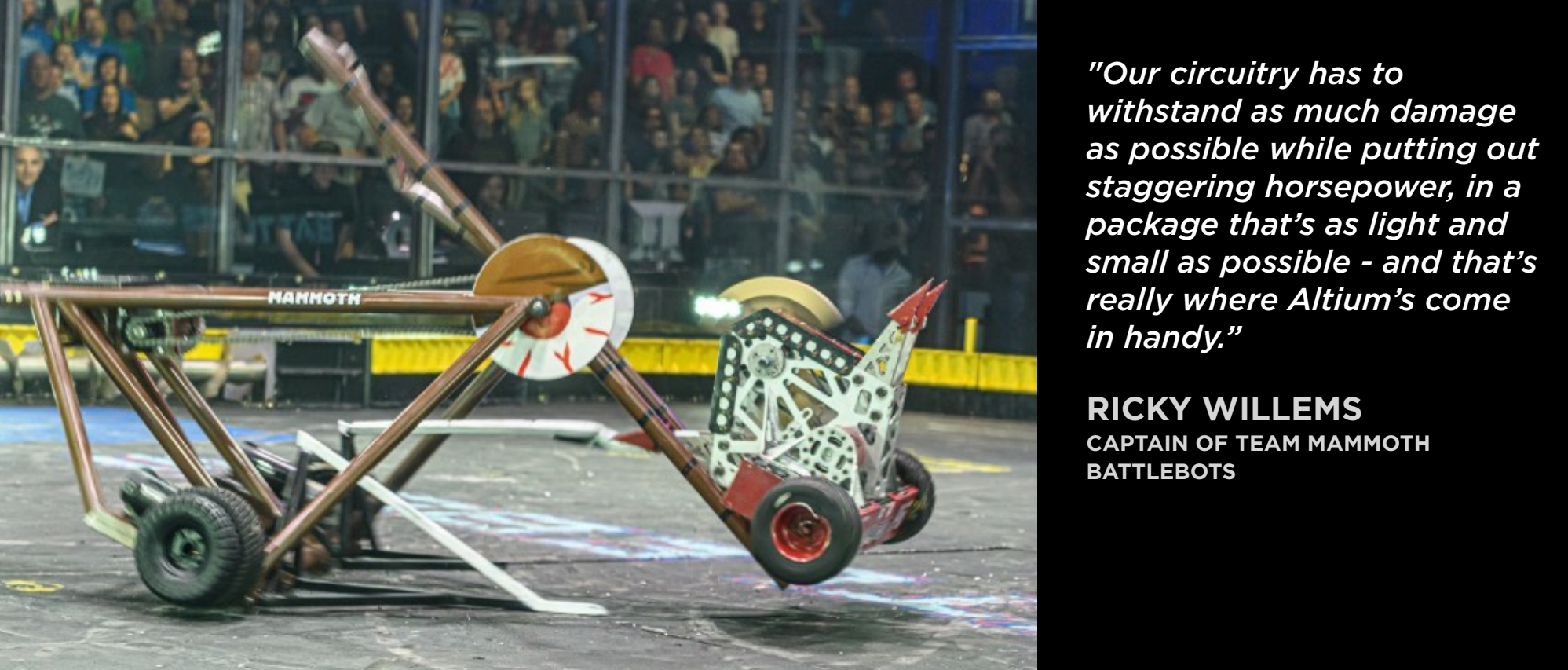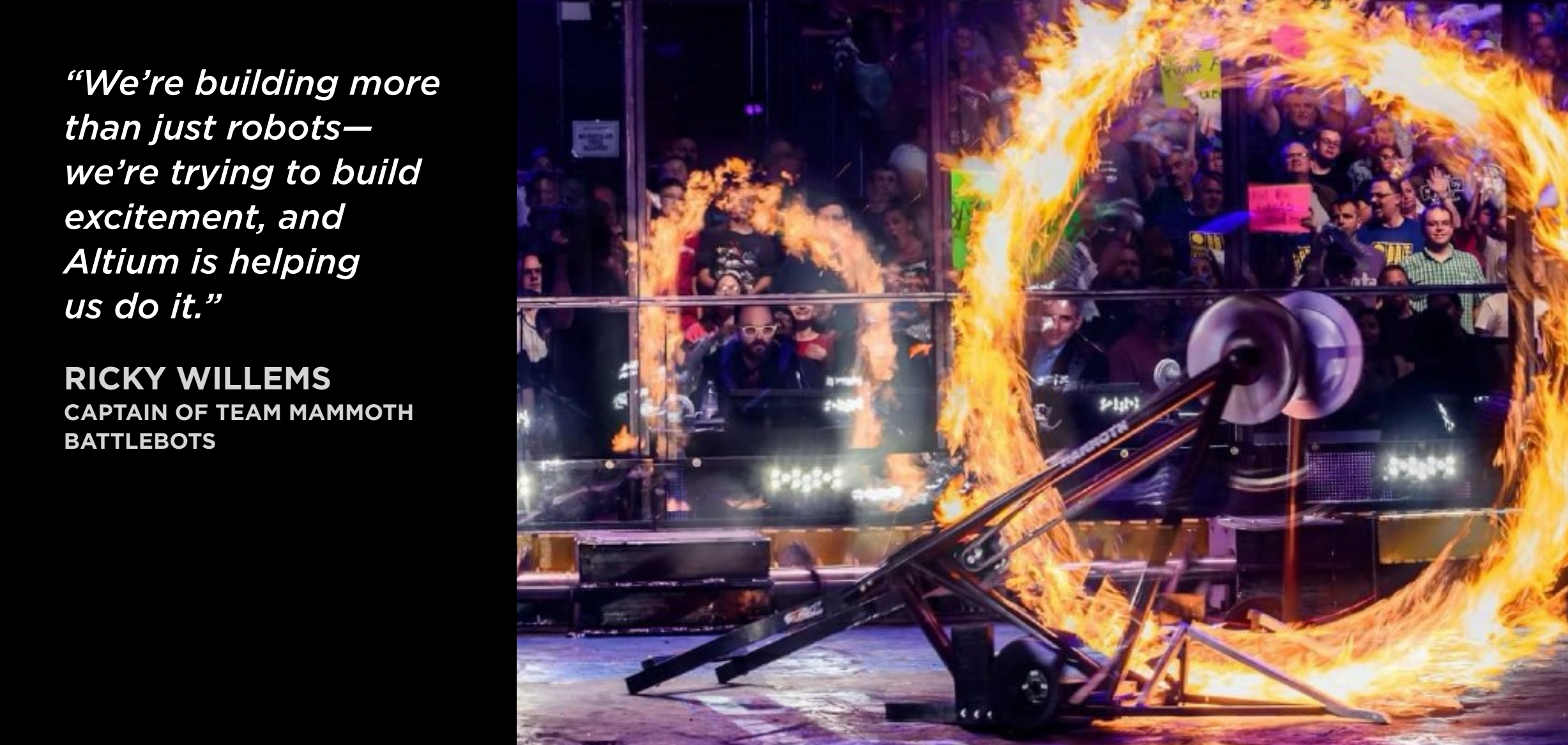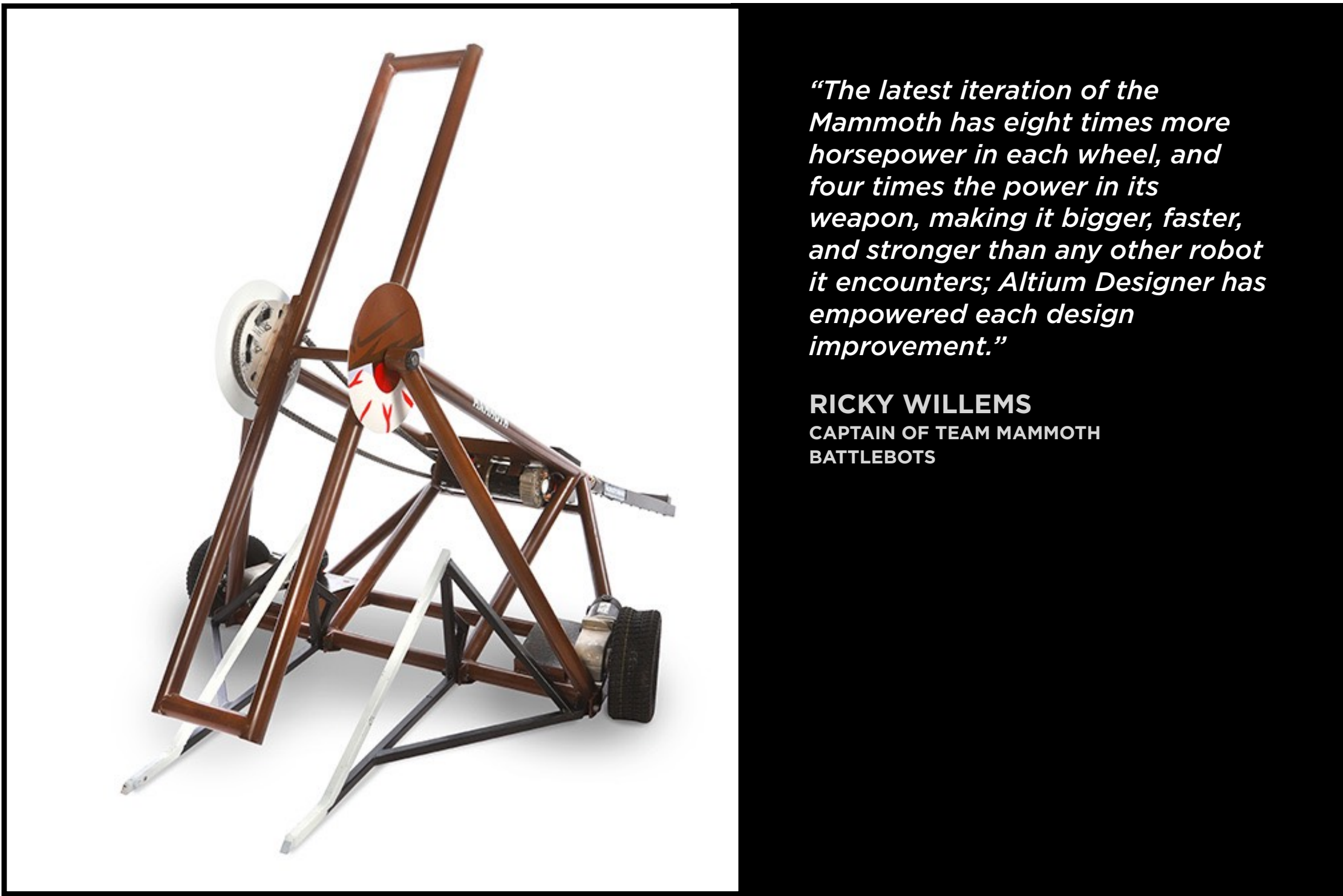Getting into the Ring with Altium

From the roar of a revving engine to cheers from huge crowds, nothing makes engineering efforts more immediately visceral than “BattleBots”. “BattleBots” has been a mainstay in popular culture since the 1990s, now in its 9th season on The Discovery Channel.
Originally developed in the late 1990s, “BattleBots” show gave robot builders of all ages and backgrounds a unique way to pursue their engineering passions and display their talent in a live setting, pitting custommade robots against each other in an exhilarating fight to the finish.
Ricky Willems, an electrical engineer, grew up on “BattleBots”, tuning in from the early 2000s on. For Ricky, the experience quickly transcended mere entertainment—watching the show inspired him to build his own robots at an early age, with the goal of competing on the show guiding his hand.
Eventually, Ricky would go on to compete with the biggest robot ever featured on the show, the “Mammoth”, and beat one of the most beloved bots in the show’s history, “Nightmare”.
And Altium was there every step of the way, helping transform Ricky’s biggest dreams into
“Mammoth” realities.

Solid Footing with a Familiar Source
Creating a mechanical warrior ready to do battle takes everything from custom hardware and electronics to a team of up to eight people to operate the bots, as well as a whole lot of blood, sweat, tears and scrap metal.
Finding the right software to design something like a 6’4”, 250lb flame-throwing robot that can catapult another robot across a ring is equally challenging.
Altium Designer took the pains out of the design process, starting with not having to learn how to use a new platform.
As Ricky explains, “Even before I graduated college, Altium was THE software to use. It has been the standard at every job I’ve had; the industry takes you more seriously when you know how to use Altium Designer.”
As a Senior Electrical Design Engineer, Ricky has relied on Altium Designer for multiple projects at different companies he’s worked for over the years, including Stanley Black & Decker and RPM Tech.
Being comfortable using Altium Designer made Ricky’s day jobs as well as his after-hour passions almost effortless.
Scalability and Simplicity
Transitioning from prototypes to winning championships takes more than just skill; it takes scalability.
Serious competitions, including “BattleBots”, have weight restrictions for the robots, as well as require competitors to have proven their worth on smaller stages. These smaller venues give designers like Ricky the proof-of-concept necessary to move from regional victories to prime time glory.
Ricky’s original Mammoth design dominated competitions in Florida, drawing the attention of fans as well as the producers of “BattleBots”.

Sensing he had a winner on his hands, Ricky began to scale up what began as a 12 lb robot into a 250 lb hulking behemoth. Altium Designer played a critical role, allowing Ricky to design and fabricate the key electrical components required for his design. The awesome robot-flinging power of the 250 lb version piqued the interest of “BattleBots” producers; before he knew it, Ricky’s childhood dreams were coming true. But now, he and his team had to come up with something even bigger.
While designing giant, flame-throwing robots may seem like Herculean tasks, with Altium Designer, scaling up to competitive weight and superior weaponry was simple.
As Ricky elaborates, “You can’t just buy off-the-shelf electronics when you’re designing something like this. Our circuitry has to withstand as much damage as possible while putting out staggering horsepower, in a package that’s as light and small as possible - and that’s really where Altium’s come in handy.”
The latest iteration of the Mammoth has eight times more horsepower in each wheel, and four times the power in its weapon, making it bigger, faster, and stronger than any other robot it encounters; Altium Designer has empowered each design improvement.
“There’s a mechanical need to be a specific size, so we have to design the electronics to support that. We’re building more than just robots—we’re trying to build excitement, and Altium is helping us do it.” And Altium Designer will help ensure that the next Mammoth is even mightier.
